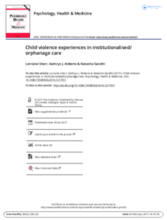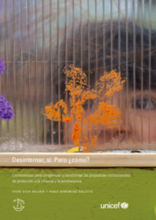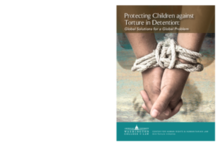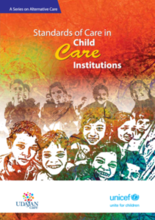Displaying 911 - 920 of 1510
This systematic review addresses violence and abuse experiences in institutionalised care, including frequency and type of abuse/violence, interventions addressing violence in institutional care, the perpetrators of violence, and the connections between abuse and cognitive delays in institutionalised children.
En esta publicación, a partir de la experiencia de trabajo y la reflexión sobre su propia práctica, La Barca ordena, sistematiza y pone a disposición de todos los actores del sistema de protección a la infancia de Uruguay los principales aprendizajes de la tarea realizada en los últimos años.
The aim of this guide is to enable advocates to access the legal and practical tools needed to secure an end to, and compensation for, violations of rights suffered while in institutional care.
A review of the evidence on deinstitutionalisation (DI) and the status of care reforms across Europe in 2016 from the Opening Doors for Europe's Children campaign - a pan-European campaign advocating for strengthening families and ending institutional care.
In this article, Eric Rosenthal examines the implications of the report of the Special Rapporteur on torture and other cruel, inhuman or degrading treatment or punishment, Juan Méndez, focused on children deprived of liberty, on the placement of children in institutions and orphanages.
This study provides a systematic review of the literature, focusing on the conceptualization and evaluation of continuity.
This chapter explores the drivers behind the continued, and in some parts of the world, growing, institutionalization of children.
The Committee's recommendations on the issues relevant to children's care are highlighted, as well as other care-related concluding observations, ratification dates, and links to the Universal Periodic Review and Hague Intercountry Adoption Country Profile.
This booklet on standards of care in child care institutions is part of a Series on Alternative Care covering the latest legal and policy framework on Alternative Care in India, which has been presented in an easy-to-understand style so that they can be used as an effective reference material by all the stakeholders.
This paper examines the deinstitutionalisation process in Bulgaria.






